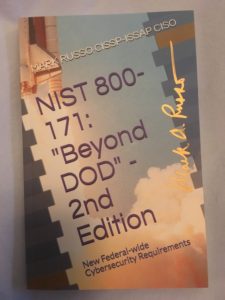
Cyber Surveillance, its implications, and China’s embrace
Are you aware of the potential for many of these new technologies? I admit I am a fan of the positive outcomes: less crime, more effective justice, improved work processes, and enhanced support during disasters (Armstrong, 2013) (ProVigil, 2016). And yet, I have a strong distrust of how humans implement technology. The positive benefits to surveillance sound wonderful but what about the reduction in privacy? And what happens if humans give in to their darker nature?A perfectly terrifying example of this is being played out today – in China. The government has started a program to rate their citizens based on their behavior, as evidenced by mass surveillance technology. Not only is this touted as the key to a better behaved populace but compliance is mandatory and disobedience is punished. If you lose credits due to speeding or posting “fake” information, some of the costs will be that you will be restricted from traveling, limited in the jobs you can get and publicly named/shamed. This program is in pilot right now but due to fully roll out across China in 2020 (Ma, 2018).The issues of humans rights and privacy rear up especially when considering how China has been able to implement this rating system: camera surveillance with face recognition technology. But China is also collecting and storing data under false pretenses such as free health care services- and we’re talking about DNA and biometrics (fingerprints and Iris scans) (Washington Post, 2017).Other Articles by Dr. Cole
Chinese “control” over ethnic minorities is infamous. But the Uighurs might be suffering the most as they are actually living in a surveillance state. The Uighurs are being controlled through technology. If you aren’t familiar with the Uighurs, they are a Muslim ethnic minority living in the most Western part of China. They are monitoring all time and detained for any “suspicious” behavior. This can be as innocent as contact with family outside of China. And the surveillance information is on the start, the Uighurs are being forced into “re-education camps” (Zand, 2018).But this has no bearing on us. Something like this couldn’t happen in the United States, right? Did you hear about the pilot program in Orlando? It may be one of many pilot programs that warn us of things to come (Cordeiro, Roulette, and Wolf, 2018). Just because we can do something, doesn’t mean we SHOULD.
References
Armstrong, S. (2013). The Strange Benefits of Living in a Total Surveillance State. Retrieved from: https://aeon.co/essays/the-strange-benefits-of-living-in-a-total-surveillance-state Cordeiro, M., J. Roulette, and C. Wolf (2018). Under Orlando’s real-time surveillance partnership with Amazon, everyone’s a suspect: All eyes on us. Retrieved from: https://m.orlandoweekly.com/orlando/under-orlandos-real-time-surveillance-partnership-with-amazon-everyones-a-suspect/Content?oid=16916635&showFullText=true Ma, A. (2018). China has started ranking citizens with a creepy “social credit system.” Retrieved from: https://www.msn.com/en-us/money/markets/china-has-started-ranking-citizens-with-a-creepy-social-credit-system-heres-what-you-can-do-wrong-and-the-embarrassing-demeaning-ways-they-can-punish-you/ar-BBP5vHM?li=BBnb7Kz ProVigil (2016). Understanding the Benefits of Security and Surveillance. Retrieved from: https://pro-vigil.com/2016/05/04/understanding-the-benefits-of-security-and-surveillance/ The Washington Post (2017). China’s intrusive, ubiquitous, scary surveillance technology. Retrieved from: https://www.washingtonpost.com/opinions/chinas-intrusive-ubiquitous-scary-surveillance-technology/2017/12/17/49f25c64-e048-11e7-89e8-edec16379010_story.html?utm_term=.66577cb86f94 Zand, B. (2018). A Surveillance State Unlike Any the World Has Ever Seen. Retrieved from: http://www.spiegel.de/international/world/china-s-xinjiang-province-a-surveillance-state-unlike-any-the-world-has-ever-seen-a-1220174.html
Dr. Susan Cole is a 2008 graduate of the University of Fairfax with a PhD in Information Assurance (Cybersecurity). She received her MBA from Salem International University (2007), her MA from American University in International Politics (1995), a BA from Wilson College in Foreign Languages (1994) and an AA in Mandarin Chinese (1997). For her PhD, she studied what influences the decision making process for IT and Cybersecurity managers in their recommendations to adopt and implement new security technology in their organizations. The specific technology she researched was Biometrics. She has achieved and maintains certification as both a Certified Information System Security Professional (CISSP) and a Certified Ethical Hacker (CEH). She also obtained her Certificate of Cloud Security Knowledge (CCSK). She’s held numerous positions from Cybersecurity Policy writer for an enterprise to a member of an Incident Response Team. Much of her career has focused on certification and accreditation (C&A) activities, now assessment and authorization (A&A) under NIST’s Risk Management Framework. She provided consulting support to small companies and now works as an Information System Security Officer (ISSO). Dr. Cole has been teaching since 2012 and has been involved with Colorado Technical University (CTU), Concordia University, Baker College, University of Maryland (UMUC), and Thomas Edison State University (TESU).










